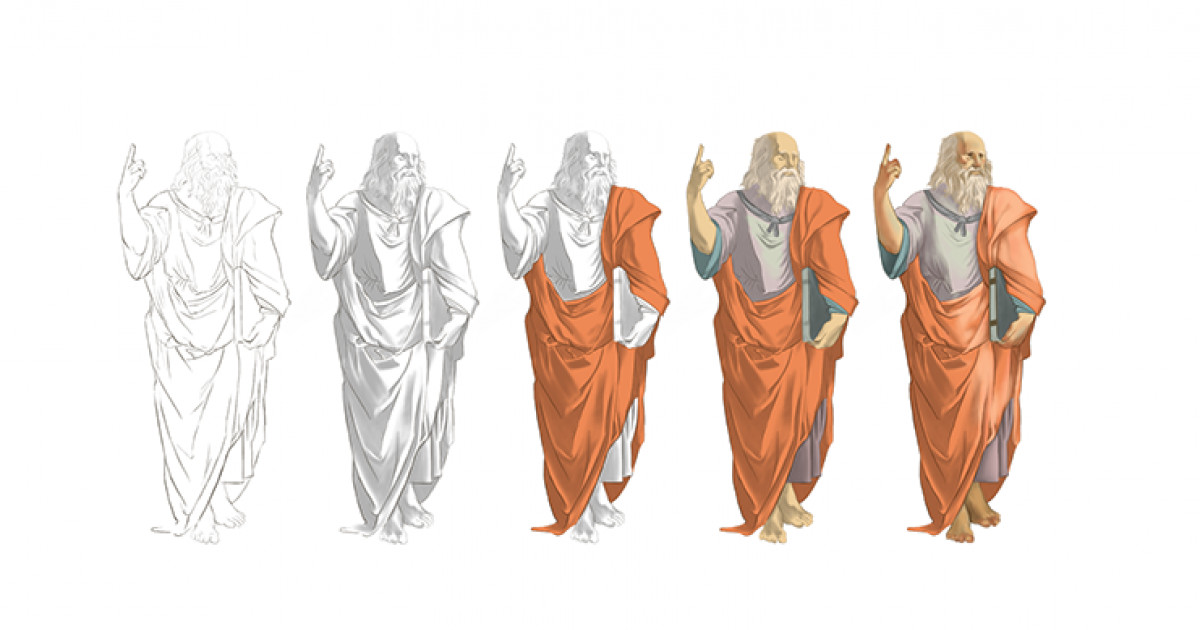Plato’s 50 Most Inspiring Quotes and Timeless Wisdom
Plato (427–347 B.C.) was one of the most important thinkers in Western philosophy. A disciple of Socrates and the teacher of Aristotle, he founded the Academy of Athens, often considered the first university in the Western world.
Plato wrote about justice, love, politics, education, and the soul, and many of his words are still quoted today. According to the Stanford Encyclopedia of Philosophy, his works laid the foundations of political philosophy, ethics, and metaphysics.
In this article, we’ve selected 50 of Plato’s most powerful quotes to inspire reflection and personal growth.
Overview of Themes
| Theme | Examples of Quotes |
|---|---|
| Self-Mastery | “The first and best victory is to conquer yourself.” |
| Knowledge & Truth | “Knowledge is the food of the soul.” |
| Love & Beauty | “At the touch of a lover, everyone becomes a poet.” |
| Politics & Justice | “The price good men pay for indifference is to be ruled by evil men.” |
| Education & Society | “The direction of education determines a person’s future.” |
50 Best Plato Quotes
On Self-Mastery and the Soul
- “The first and best victory is to conquer yourself.”
- “The greatest wealth is to live content with little.”
- “An unexamined life is not worth living.”
- “The soul takes nothing with it to the next world but its education and cultivation.”
- “The greatest penalty for refusing to rule is to be governed by someone worse than yourself.”
On Knowledge and Truth
- “Knowledge is the food of the soul.”
- “Opinion is the medium between knowledge and ignorance.”
- “A good decision is based on knowledge, not on numbers.”
- “Wonder is the beginning of wisdom.”
- “Ignorance is the root of all evil.”
On Love and Beauty
- “At the touch of a lover, everyone becomes a poet.”
- “Love is the joy of the good, the wonder of the wise, the amazement of the gods.”
- “Beauty lies in the eyes of the beholder.”
- “Love is a serious mental disease.”
- “Love is the name for our pursuit of wholeness.”
On Politics and Justice
- “The price good men pay for indifference to public affairs is to be ruled by evil men.”
- “Justice means minding your own business and not meddling with others’ concerns.”
- “Dictatorship naturally arises out of democracy.”
- “One of the penalties for refusing to participate in politics is being governed by your inferiors.”
- “Good people do not need laws to tell them to act responsibly.”
On Education and Society
- “The direction in which a man’s education begins will determine his future life.”
- “The object of education is to teach us to love what is beautiful.”
- “The beginning is the most important part of the work.”
- “If women are expected to do the same work as men, they must be taught the same things.”
- “Education is the kindling of a flame, not the filling of a vessel.”
On Life and Human Nature
- “The measure of a man is what he does with power.”
- “Courage is knowing what not to fear.”
- “He who commits injustice is ever made more wretched than he who suffers it.”
- “Necessity is the mother of invention.”
- “We can easily forgive a child who is afraid of the dark; the real tragedy is when men are afraid of the light.”
On Philosophy and Thinking
- “Philosophy begins in wonder.”
- “He who is not a good servant will not be a good master.”
- “There is truth in wine and children.”
- “A dog has the soul of a philosopher.”
- “Thinking is the talking of the soul with itself.”
On Friendship and Relationships
- “Friends have all things in common.”
- “Be kind, for everyone you meet is fighting a harder battle.”
- “The man who makes everything that leads to happiness depend upon himself is the only one who can be truly free.”
- “The beginning is half of the whole.”
- “Only the dead have seen the end of war.”
On Morality and Virtue
- “Good actions give strength to ourselves and inspire good actions in others.”
- “No one is more hated than he who speaks the truth.”
- “We are twice armed if we fight with faith.”
- “Honesty is for the most part less profitable than dishonesty.”
- “The man who commits injustice is always more miserable than the man who suffers it.”
On Life’s Lessons
- “Excess generally causes reaction, and produces a change in the opposite direction.”
- “A good man cannot be harmed either in life or in death.”
- “There are two things a person should never be angry at: what they can help, and what they cannot.”
- “A house that has a library has a soul.”
- “Wise men speak because they have something to say; fools speak because they must say something.”
Why Plato’s Quotes Still Matter
Plato’s ideas resonate because they touch on eternal human questions: how to live well, what justice means, the role of education, and the nature of love. Modern philosophers, as highlighted in the Internet Encyclopedia of Philosophy, still debate and develop his ideas in the context of today’s world.
FAQs about Plato
1. Who was Plato?
A Greek philosopher, student of Socrates, and teacher of Aristotle. He founded the Academy in Athens.
2. What did Plato write?
Works like The Republic, The Symposium, Phaedo, and The Apology of Socrates.
3. Why read Plato today?
Because his reflections on society, ethics, and the soul remain relevant.
4. Where can I read his works?
Check Project Gutenberg or Perseus Digital Library.
5. Did Plato actually say all these quotes?
Yes, though translations may differ in wording.

